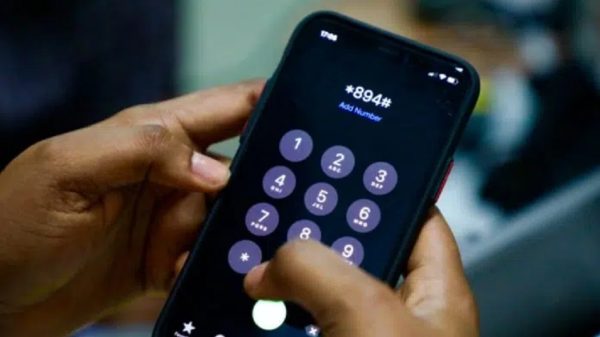Nigerian Communications Commission (NCC) has called for unified action among all stakeholders to protect Nigeria’s telecom infrastructure, underscoring the urgent need to safeguard the nation’s critical digital lifelines.
Speaking at the Industry Sustainability and Critical National Information Infrastructure Conference held at CityHeight Hotel, Ikeja, Dr. Aminu Maida, Executive Vice Chairman/CEO of the NCC, emphasized the strategic importance of telecommunications in supporting socio-economic development, national security, and digital sovereignty.
Dr. Maida, who was represented by Edoyemi Ogoh, Director, Technical Standards and Network Integrity, emphasized that telecommunications now constitutes over 14.4% of Nigeria’s GDP, acting as the backbone for vital sectors such as banking, energy, health, security, education, and governance. He described telecom infrastructure, including towers, fiber optic cables, data centers, internet exchange points, and international gateways, as the digital lifelines that sustain the country’s economy and societal functions.
Highlighting the designation of telecom infrastructure as Critical National Information Infrastructure (CNII) by President Bola Ahmed Tinubu under the Cybersecurity Act, Maida stressed the heightened responsibility shared by regulators, operators, government agencies, and citizens to protect this national asset.
“The cost of inaction is steep, from service disruptions and investor flight to national security vulnerabilities and economic instability,” Ogoh warned, calling the conference a “call to action” for all stakeholders to build a secure, sustainable, inclusive, and resilient telecom ecosystem.
Maida outlined multifaceted challenges facing the sector, including rampant vandalism, fiber cuts averaging over 1,100 weekly incidents, denial of site access, theft of equipment and diesel, power supply gaps, bureaucratic delays in permits, and rising cyber threats linked to increased OTT and IoT usage. He noted that these challenges not only impair service quality but threaten national security.
The NCC’s proactive strategies involve enforcing strict technical standards for infrastructure deployment, launching public awareness campaigns to foster community ownership, and fostering multi-stakeholder collaboration among lawmakers, judiciary, law enforcement, state governments, and private sector operators.
Maida highlighted efforts such as the Right of Way Harmonisation Initiative, forming a CNII Industry Working Group, and instituting mediation as a sustainable alternative to litigation for resolving operational conflicts.
Further collaboration with the Office of the National Security Adviser ensures alignment of regulatory enforcement with national security priorities through intelligence sharing and coordinated responses.
The keynote stressed the importance of a streamlined and uniform process for infrastructure permits and acquisitions, improved information sharing among stakeholders, and strengthened enforcement mechanisms to deter and punish culprits damaging critical telecom assets.
Maida proposed the establishment of a dedicated trust fund to support the protection and sustainability of telecom infrastructure, drawing parallels with existing government security funds that have proven effective.
Concluding, Maida urged all participants to recognize telecommunications not merely as a sector but as “the nervous system of our digital economy” and a “national resilience system” crucial to Nigeria’s future.
The conference, organized by the Nigeria Information Technology Reporters Association (NITRA) and the Association of Licensed Telecom Operators of Nigeria (ALTON), provided a timely platform for crucial dialogue aimed at safeguarding Nigeria’s digital infrastructure amidst growing economic and security challenges.
![]()





























































